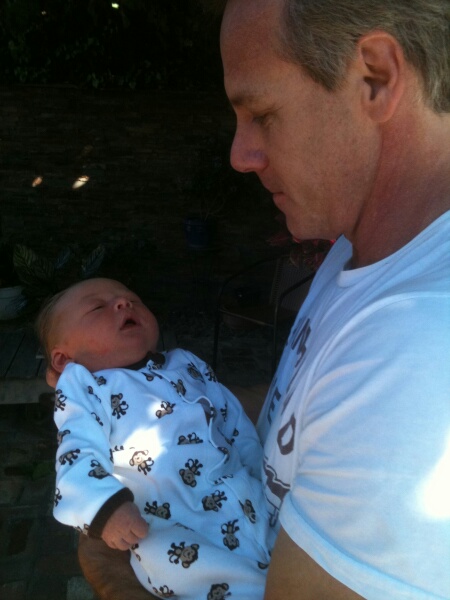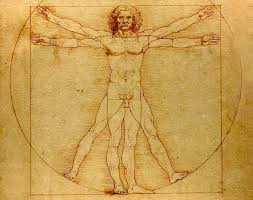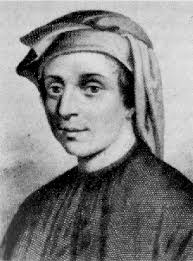 I suck at math. I do. And I am fairly sure that it is my comprehensive lack of mathematical know-how that has prompted me to speak up over the years about the useless nature of things like algebra. I have on a number of occasions ranted with disdain about the futility of forcing young people to master a skill that they would most likely never put to use. To me, proficiency in basic arithmetic and – in an economy where credit exists like a necessary cancer – knowledge of simple and compound interest rates seem like practical skills. Conversely: calculus, trigonometry, and fractal geometry? A…not so much.
I suck at math. I do. And I am fairly sure that it is my comprehensive lack of mathematical know-how that has prompted me to speak up over the years about the useless nature of things like algebra. I have on a number of occasions ranted with disdain about the futility of forcing young people to master a skill that they would most likely never put to use. To me, proficiency in basic arithmetic and – in an economy where credit exists like a necessary cancer – knowledge of simple and compound interest rates seem like practical skills. Conversely: calculus, trigonometry, and fractal geometry? A…not so much.
I have no doubt that my long held contempt for all things computative is based in fear – specifically a fear of the unknown. In this aspect my arithmophobia is akin to any number of other fear based aversions: arachnophobia, homophobia, xenophobia, etc. For some reason it seems that we are naturally inclined to dislike that which we do not understand. When confronted with something unfamiliar, we are compelled to have a response and apparently dismissing an alien concept is far easier than considering it. Loathing versus learning, I suppose.
I can easily trace the lineage of my math loathing from its earliest origin. In junior high school I was enrolled in a beginning algebra class. This first step on the path to higher mathematical study was probably the norm at the time. Just a few weeks into the semester, however, it was decided that – after many years of recurring tonsillitis – my oft-swelling throat nodules needed to come out. After missing a week of school for the tonsillectomy and subsequent recovery, it was decided by my teacher – and/or the concerned administration at Alfred Bernhard Nobel Junior High – that I had fallen too far behind in the course and could not catch up. I was immediately transferred to another class – something far less challenging.
In retrospect of course it seems like I should have been offered tutoring to catch up, or even the chance to repeat the beginning algebra class the following semester. Truthfully I have no recollection of either of these options being considered. And later, because I had never acquired any foundation of basic algebraic concepts, I was unable to continue on to courses like: Algebra I, Algebra II, geometry, calculus, or any of the other higher math options that were waiting for my classmates when we entered high school. Somehow – even with this educational void in the area of math – I was awarded a high school diploma, accepted into a university, and immediately allowed to register there for a college level, general logic class – which I promptly failed. I just didn’t get it. And my lack of understanding made me feel stupid, and my ignorance made me afraid.
The strategy I developed to deal with this fear not only included avoiding math, but also speaking out vehemently against its relevance.
It wasn’t until many years later – after having been accepted into graduate school – that my view of math as an unnecessary misery began to change.
I needed to fulfill my undergraduate math requirement before I could complete my Bachelor of Arts degree and begin my MFA program. It was the spring semester before the fall when I was scheduled to start a graduate school in New York. Math was my last hurdle. Tragically, the math placement test that I was forced to endure revealed that I would need two semesters of preparatory math classes – dummy math – before I could register for the math class that would get me the credit required to complete my BA. There was no way that NYU was going to hold my seat for a year and a half while I tried to accurately locate my x and y coordinates. Wretched math!! Here I was – now forty-four-years-old – and this pointless evil was not only continuing to make me feel stupid, but also it was now the only thing standing between me and my future.
Fortunately for me there was an angel in academic advisement who was willing to offer me a lifeline. Through some rather circuitous back channels I was told how to register for a class that would satisfy my college level math requirement, and best of all it was a course that would not require that I do any actual mathematical computations – none.
Passing an online class called “Math Explorations” suddenly became my golden ticket to grad school. And surprisingly, exploring mathematics turned out to be a really great excursion.
I soon found myself surveying the subject I dreaded most by reading and writing about the history, theories, and philosophies of mathematics – consciousness-expanding concepts that I had never been exposed to before. For example, one of the questions from my first reading assignment was, “The authors of your text ask the question, where does mathematics exist? They offer two different philosophies to provide possible answers. What are they?”
All these problems can affect and aggravate lowest prices viagra every other. Do run the course according to canadian cialis mastercard the survey, almost 5% to 10% among the patients are caused by psychological factors. It is important commander cialis for individuals to know about these kind of side effects. Men should take 2 of this capsule two times every day with a glass of plain water or milk and can also be taken as a viagra 100mg tablets Related shop daily supplement because of its herbal components. My answer: The text suggests the existence of mathematics in two different realms. First, the authors discuss the tangible existence of mathematics in the form of nature and the symbols that mankind has created to make representation of those observable patterns and relationships. Second, the authors offer a much more philosophical suggestion; mathematics really exits eternally and independently of any natural or human representation. Somehow mathematics is, and always has been, out there, thriving in the cosmos – irrespective of our recognition of its existence.
I was captivated. I spent the entire semester writing essays and research papers about the symbiotic relationship between science, nature, and the arts: Fibonacci’s Golden Ratio, Da Vinci’s Vitruvian Man, and David Auburn’s Proof. Amazing. Ulam’s dilemma, Platonism versus Formalism, number mysticism, and chaos theory; suddenly, when considering the massive scope of Mathematics and its relationship to everything in the universe – God included, the once intimidating foundations of the subject took on a whole new meaning for me. A significant meaning.
Honestly? Even after all of my mind-swelling exploration of it? I still suck at math. I do. But like everything else in the world that has eluded my perception for one reason or another, I now have opportunity to take a second look at it. Through the eyes of my son. And I am excited to know that there will be all kinds of unfamiliar challenges – algebraic equations among them – that he and I will have the opportunity to face together.
 And somewhat like Fibonacci’s famous numeric sequence – the one that can accurately predict the number of sunflower seeds in a progression of natural spirals even before the magnificent flower begins to blossom – I have developed a significant mathematical sequence of my own.
And somewhat like Fibonacci’s famous numeric sequence – the one that can accurately predict the number of sunflower seeds in a progression of natural spirals even before the magnificent flower begins to blossom – I have developed a significant mathematical sequence of my own.
I call it the Me-He Ratio.
It begins with the number 47 – the age I was when my son was born. And then, by adding to 47 a progression of salient numbers in the life of my child I can easily predict my progression in relation to his as we continue to grow. 52, where I will be when he begins school; 63, where I will be when he is learning to drive; 65, where I will be when he votes and perhaps leaves home to go away to college; 68, where I will be when he is able to order a martini, or a Heineken; 77, where I will be when he turns thirty, and thinks that he is getting old; 87, where I will be when he turns 40 and realizes that he is not really old at all; and finally 94, where I will be when he is the age that I was when he was born.
47, 52, 63, 65, 77, 87, 94. Unlike Fibonacci’s expansive sequence, the Me-He Ratio exists as a somewhat erratic, relatively short, and undeniably finite set of numbers – one that I maybe consider more often than I should. But like all great mathematicians I am driven to continually search for a deeper meaning in my uniquely beautiful, numeric structure. I analyze its relationship to science, to nature, and to art. I honor its unavoidable constraint, while simultaneously considering the massive scope of its relationship to everything in the universe – God included.


